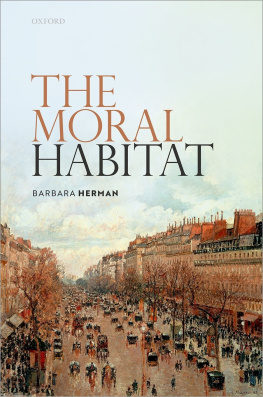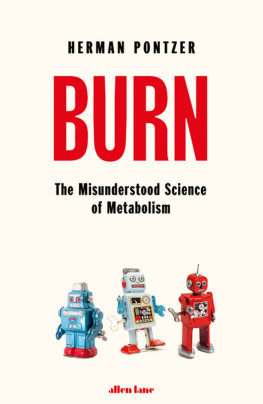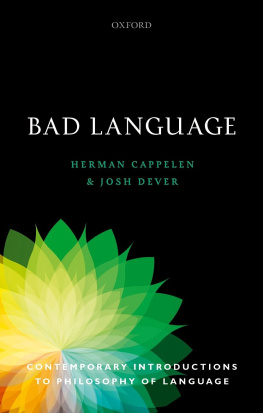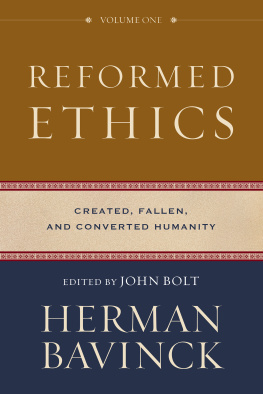Barbara Herman - The Moral Habitat
Here you can read online Barbara Herman - The Moral Habitat full text of the book (entire story) in english for free. Download pdf and epub, get meaning, cover and reviews about this ebook. City: Oxford, year: 2021, publisher: Oxford University Press USA - OSO, genre: Romance novel. Description of the work, (preface) as well as reviews are available. Best literature library LitArk.com created for fans of good reading and offers a wide selection of genres:
Romance novel
Science fiction
Adventure
Detective
Science
History
Home and family
Prose
Art
Politics
Computer
Non-fiction
Religion
Business
Children
Humor
Choose a favorite category and find really read worthwhile books. Enjoy immersion in the world of imagination, feel the emotions of the characters or learn something new for yourself, make an fascinating discovery.
- Book:The Moral Habitat
- Author:
- Publisher:Oxford University Press USA - OSO
- Genre:
- Year:2021
- City:Oxford
- Rating:5 / 5
- Favourites:Add to favourites
- Your mark:
- 100
- 1
- 2
- 3
- 4
- 5
The Moral Habitat: summary, description and annotation
We offer to read an annotation, description, summary or preface (depends on what the author of the book "The Moral Habitat" wrote himself). If you haven't found the necessary information about the book — write in the comments, we will try to find it.
The Moral Habitat — read online for free the complete book (whole text) full work
Below is the text of the book, divided by pages. System saving the place of the last page read, allows you to conveniently read the book "The Moral Habitat" online for free, without having to search again every time where you left off. Put a bookmark, and you can go to the page where you finished reading at any time.
Font size:
Interval:
Bookmark:


Great Clarendon Street, Oxford, OX2 6DP, United Kingdom
Oxford University Press is a department of the University of Oxford. It furthers the Universitys objective of excellence in research, scholarship, and education by publishing worldwide. Oxford is a registered trade mark of Oxford University Press in the UK and in certain other countries
Barbara Herman 2021.
The moral rights of the author have been asserted
First Edition published in 2021
Impression: 1
All rights reserved. No part of this publication may be reproduced, stored in a retrieval system, or transmitted, in any form or by any means, without the prior permission in writing of Oxford University Press, or as expressly permitted by law, by licence or under terms agreed with the appropriate reprographics rights organization. Enquiries concerning reproduction outside the scope of the above should be sent to the Rights Department, Oxford University Press, at the address above
You must not circulate this work in any other form and you must impose this same condition on any acquirer
Published in the United States of America by Oxford University Press
198 Madison Avenue, New York, NY 10016, United States of America
British Library Cataloguing in Publication Data
Data available
Library of Congress Control Number: 2021936143
ISBN 9780192896353
ebook ISBN 9780192650191
DOI: 10.1093/oso/9780192896353.001.0001
Printed and bound in the UK by
TJ Books Limited
Links to third party websites are provided by Oxford in good faith and for information only. Oxford disclaims any responsibility for the materials contained in any third party website referenced in this work.
For Theo and Zoe
This book covers a great deal of territory. It begins with an investigation of a few understudied imperfect duties, which, somewhat surprisingly, tell us some important but generally unnoticed facts about what it is to be a moral agent. The second part of the book launches a substantial reinterpretation of Kants ethics as a system of duties, juridical and ethical, perfect and imperfect, that can incorporate what we learn from imperfect duties and do much more. This system of duties provides the structure for what I call a moral habitat: a made environment, created by and for free and equal persons living together. It is a dynamic system, with duties from different spheres shaping and being affected by each other. The last part of the book takes up some implications and applications of this moral habitat idea. From what would be involved, morally, in recognizing a human right to housing to some meta-ethical issues about objectivity and our responsibility for moral change, The Moral Habitat explores the resources of this holistic agent-centered Kantian view of morality.
To help traverse this much territory, Ive taken some liberties. Although Part where their lessons direct an inquiry about the nature and conditions of lived moral practice that I aim to show Kantian theory can address when interpreted as a habitat system of duties. If we lose some truisms about Kants ethics we gain a better way of understanding and assembling the normative pieces of Kantian theory, one that puts the deliberating and morally active person at the center of a generative moral enterprise. In order to lay out such a large idea, Ive had to forego some of the usual scholarly apparatus of addressing alternative readings and counter-arguments. It is also a holistic theory, whose parts cant properly be assessed independently. Theres a cost to asking a reader to suspend judgment while the pieces are put in place, which I accept, and ask for a certain measure of good will and trust as I stage this foray into Kants work. I think of the book as an essayin the sense of an attemptto introduce and defend the idea of a Kantian moral habitat. The last part of the book aims to be bold in a different way. If a moral theory is any good, it should help us address real problems that we face. So I put the moral habitat idea to work on a range of front-page examples, about homelessness and housing but also issues concerning refugees, reproductive rights, educationsubjects I know something about, but where I would hardly claim expertise. In a way this seems to me a virtue: very few of us are experts, and none of us are expert in all the things we need to think about. If I can show that even so theres productive thought to be had about these issues using the Kantian moral habitats program, that is strong evidence of its value.
Alongside these two ambitions of the moral habitat projectrehabilitating imperfect duties and reinterpreting and extending Kants normative thoughtis a third, concerning the fit of the ethical and the juridical, or the moral and the political. Historically, there have been a variety of ways in which the pairs have been connected. The (just) polis is sometimes seen as the necessary setting for virtue, sometimes as the very idea of virtue writ large. Law and morality have been taken to have a common root in natural law. In social contract theory, promising (as real or hypothetical consent) legitimates and is a condition of the states authority. Much less prominent in the Western tradition is the idea that the pairs are related as two parts of a common moral enterprise, together articulating and realizing a division of moral labor. That imbalance in theorizing strikes me as unfortunate, for our theory and our practice. Our moral lives take place in the terms of some political order or other, whose concepts enter into our understanding of what we do, on whatever principle, from whatever motive. And what we as individuals take to be right and wrong isnt just about a private space, constrained by law, from which we emerge from time to time to take a public action. How we care about and care for each other depends on what we value and on the resources were afforded by public institutions. The moral enterprise can be organized in different ways without either domain owning it. The heart of the moral habitat idea is an account of the moral in which its work is done by two cooperating parts, interconnected yet differently structured. In one we each separately do what we ought; in the other the same we, only now acting together, are tasked to do something that we cannot accomplish acting one by one. Its what Plato thought impossible, Marx thought unnecessary, and, I want to show, Kant thought essential if we are to realize an order of free and equal persons.
Does the moral habitat idea need Kant? Probably not. Or even, hopefully not. The focus on Kant is only partly explained by my own sense of mission to produce a textually accurate and sound version of his ethics. For the other part, the exposition of the moral habitat idea required a theoretical framework, though not just any one would support it. It is a notable result that the revised Kantian theory can succeed at this task, and further, that taking on the moral habitat idea extends the real-world application of its fundamental values and principles.
During the (too) many years Ive been working on different parts of this project, Ive collected many debts. For helpful discussion at the very beginning of the project I thank Henry Richardsons Moral Innovation Seminar at Georgetown University. For the kind of engaged critical discussion that keeps one going, Im greatly appreciative of the law and philosophy groups at NYU, UCLA, University of Toronto Law School, Queens University Law School, University of Chicago Law School, and University of Michigan Law School, and equally, for stimulating discussion at Princeton Universitys Center for Human Values, University of Londons Institute of Philosophy, and the philosophy departments at Amsterdam University, University of Antwerp, Columbia University, Cornell University, Stanford University, University of Kansas, University of Vermont, USC, and UCSD.
Font size:
Interval:
Bookmark:
Similar books «The Moral Habitat»
Look at similar books to The Moral Habitat. We have selected literature similar in name and meaning in the hope of providing readers with more options to find new, interesting, not yet read works.
Discussion, reviews of the book The Moral Habitat and just readers' own opinions. Leave your comments, write what you think about the work, its meaning or the main characters. Specify what exactly you liked and what you didn't like, and why you think so.










